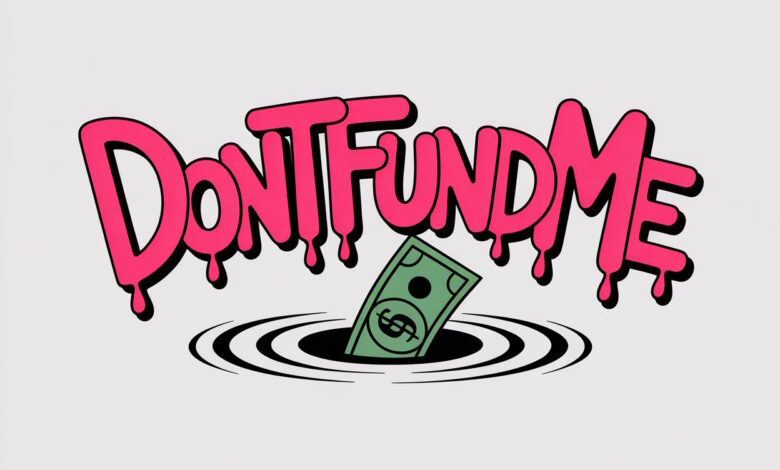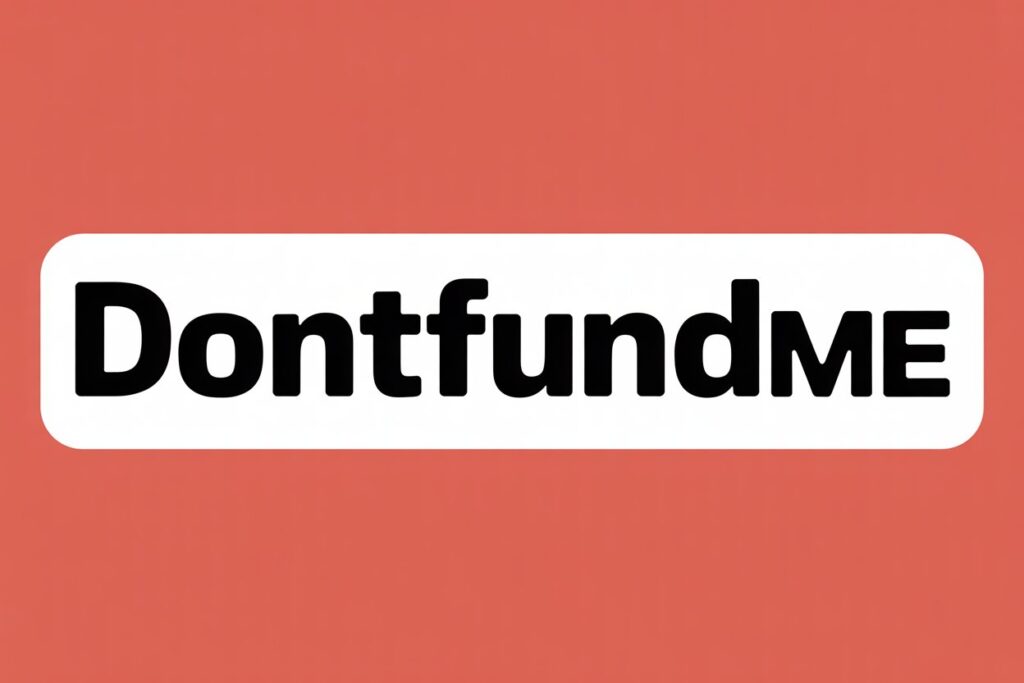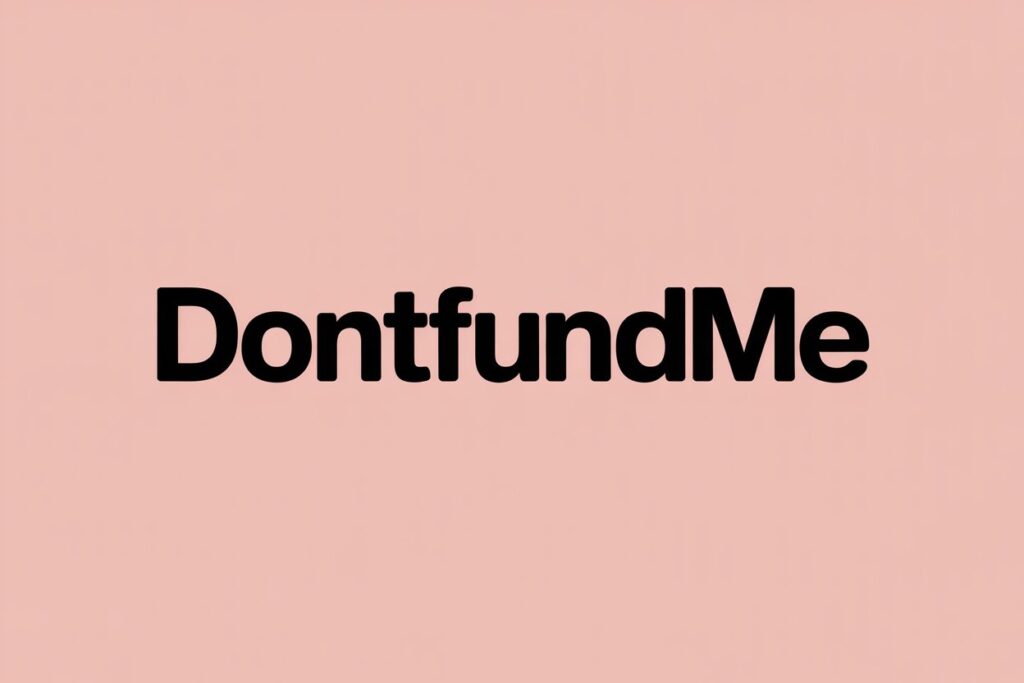What Is “DontFundMe”? The Internet’s Funny Take on Ridiculous Fundraisers

Have you ever scrolled through GoFundMe and thought, “Wait… people are raising money for THAT?” You’re not alone. The internet has noticed too — and that’s exactly how dontfundme was born.
The word “dontfundme” has become a playful way to call out silly, selfish, or just plain strange crowdfunding campaigns. It’s what people say when someone’s fundraiser doesn’t really deserve the public’s money. Instead of asking, “Can you help?” these posts make people ask, “Seriously?”
Let’s look at what dontfundme is all about, why people find it so funny (and sometimes annoying), and what it says about online fundraising today.
The Birth of “DontFundMe”

Crowdfunding used to be simple. Someone had a problem, they asked for help, and kind people donated. It was all about community and support. But over time, not everyone used it that way.
People started making GoFundMe pages for things that weren’t really emergencies — like paying for vacations, buying luxury items, or even replacing concert tickets. That’s when internet users started to push back, and the phrase dontfundme began to trend.
There’s even a Reddit community called r/DontFundMe, where users share the most over-the-top or ridiculous fundraisers they find online. Some examples are funny, some are frustrating, and some are just plain confusing. One person might ask for donations to “help me move to Hawaii for a fresh start,” while another wants money to “buy a dragon tattoo and live my truth.” It’s all there — the good, the bad, and the “you can’t be serious.”
Why People Love (and Laugh at) DontFundMe Posts
Part of the fun is the mix of shock and humor. People can’t believe what some others ask money for. Reading these posts can be like watching a comedy show, where each fundraiser tries to top the last one in silliness.
For example, one campaign asked for donations so someone could “quit their job and find themselves spiritually.” Another wanted help paying for a dream wedding — even though the couple already had money saved. These stories end up shared online with a big “DontFundMe!” tag, as a warning to others not to take it too seriously.
But beyond the laughs, there’s also a message. People are tired of seeing platforms like GoFundMe being used for things that feel selfish or dishonest. They want real causes to stand out — people who truly need help. The dontfundme trend reminds everyone that honesty and purpose still matter online.
The Subreddit That Started the Trend

If you visit r/DontFundMe on Reddit, you’ll find a mix of comedy and social commentary. Users post screenshots of real fundraisers that made them raise an eyebrow. Some are innocent but silly. Others seem like scams. Either way, the comments are full of jokes, questions, and lighthearted criticism.
The community started as a way to laugh, but over time it became something more. It opened conversations about online responsibility and digital ethics. Should people be allowed to ask for anything? Should platforms remove certain fundraisers? Those are real questions that dontfundme communities help bring to light.
It’s not just about mocking people — it’s about discussing what’s fair and what’s not when asking the public for money.
Why the Internet Needs a Laugh
Let’s be honest — the world can feel pretty serious these days. Between bills, news, and daily stress, a little humor goes a long way. That’s why dontfundme content is so popular. It gives people a reason to laugh at something harmless and relatable.
We’ve all seen moments online that make us think, “Really? You’re asking for that?” But instead of getting angry, the dontfundme trend turns it into fun. It’s internet culture doing what it does best — finding humor in everyday life.
What the DontFundMe Trend Teaches Us
Even though dontfundme started as a funny internet trend, it teaches a real lesson about how people use crowdfunding today. It shows that not every fundraiser is created equal — and not everyone online feels the same about what’s “worthy” of donations.
Some people truly need help — for medical bills, emergencies, or family problems. Others use crowdfunding to chase dreams, like starting a small business or making music. And then there are those who ask for money just because they can. That’s where the dontfundme idea steps in — it’s the internet’s way of saying, “Maybe this one isn’t it.”
This trend reminds us to think before donating. It’s not about judging people harshly — it’s about being smart and careful with where our money goes.
The Line Between Help and Humor
The tricky part is that sometimes it’s hard to tell when a fundraiser is real or just a joke. Some dontfundme posts are so wild that people aren’t sure if they’re serious or meant to be funny.
For example, someone once started a campaign asking for money to “replace a broken gaming chair” after losing a video game. Another person asked for donations to “buy a private island” — as a joke. But even joke fundraisers can attract attention and real donations.
That’s why it’s important to stop and think: Is this person truly in need, or just having fun online? The dontfundme community helps people see the difference. It’s not about being mean — it’s about teaching awareness in a fun way.
How DontFundMe Changed the Way We See Crowdfunding
Before trends like dontfundme, most people saw crowdfunding as a serious tool for emergencies and projects. But now, it’s clear that it can also be a place for jokes, entertainment, and even self-promotion.
This mix of serious and silly has changed the culture of giving online. People are more alert now. They double-check fundraisers before donating. Platforms like GoFundMe also have more rules to make sure fake or misleading fundraisers don’t get too far.
In a way, dontfundme made crowdfunding stronger. By calling out the bad and the funny, it helped people see what good fundraising really looks like — honest, clear, and meaningful.
Why People Still Love It in 2025
Even in 2025, dontfundme content is still everywhere — on Reddit, TikTok, Instagram, and more. People keep sharing the wildest fundraising requests they find online, and the internet keeps laughing.
The reason it stays popular is simple: it’s relatable. Everyone has seen something online that makes them shake their head and smile. The dontfundme trend gives people a space to share that feeling with others.
At the same time, it’s a gentle reminder to keep the internet honest. It says, “Ask for help if you need it — but don’t take advantage of people’s kindness.” That message never gets old.
The Real Message Behind the Laughs

Yes, dontfundme is funny. Yes, it gives us endless memes and jokes. But deep down, it also shows something real about human nature. Most people want to help others. They just don’t want to feel tricked or used.
By pointing out the most ridiculous fundraisers, the dontfundme movement helps protect that good spirit. It makes people think twice before donating — and before posting. It keeps crowdfunding honest, and keeps the laughs coming too.
So next time you see a wild GoFundMe post online, you’ll probably smile and think, “That’s a total dontfundme.” And maybe, just maybe, that’s a good thing — because laughter, awareness, and honesty all help make the internet a better place.
Final Thoughts
The dontfundme trend started with jokes, but it turned into something meaningful. It helps people laugh, think, and stay aware in the online world. And as long as there are wild fundraisers out there, dontfundme will always have something funny — and maybe even important — to say.



